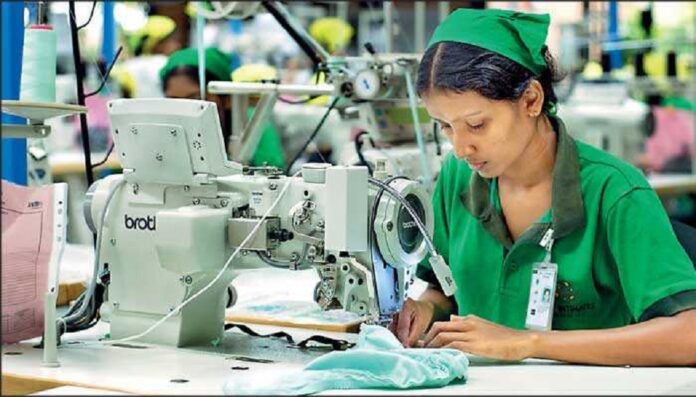By: Staff Writer
Colombo (LNW): Sri Lanka’s Apparel Industry is to step into vertical integration and stronger trade ties with international buyers with the aim of moving into the next modern stage of the garment industry.
Vertical integration is a strategy that allows a company to streamline its operations by taking direct ownership of various stages of its production process rather than relying on external contractors or suppliers.
The newly appointed Chairman of the Fabric Apparel Accessory Manufacturers Association (FAAMA), Sahan Rajapakse, highlighted the importance of strengthening vertical integration and import substitution of textiles as the way forward for the industry.
Speaking at the 16th Annual General Meeting of the Association, the Chairman of FAAMA noted that the country currently imports most of its fabric requirements and raw materials, amounting to US$ 2 billion annually.
Most of local fabric requirements are imported, which include 10% synthetic fabrics and approximately 50% cotton.
Only roughly 10% are produced domestically. When we look at it from a numerical perspective, there’s a significant market share we can capture, he said.
But it’s not just about the numbers; it’s about how we redefine the industry, position our country, and introduce innovation.
It’s about creating true vertical integration, encompassing lead times, pricing, and industry flexibility. At FAAMA, we can seize this potential, establish true vertical integration, and expand into the global market and supply chain,” Rajapaksa stressed.
FAAMA also highlighted the sector’s risk brought about by the removal of SVAT, citing that it will lead to apparel manufacturers seeking to import more raw materials rather than purchasing them locally from FAAMA membership.
This could result in 15% of their purchase costs becoming entangled in a lengthy refund process.
Meanwhile, the outgoing Chairman of FAAMA, Pubudu De Silva, noted that the country has immense potential to strengthen its ability to source materials closer to home.
Chairman of the Joint Apparel Association Forum, the apex body of the apparel sector, Sharad Amalean, noted that while the industry is facing a drop in orders, the importance of vertical integration cannot be overlooked.
Strengthening Free Trade Agreements (FTAs) with neighbouring countries like India is essential if the sector is to develop and compete with the likes of Bangladesh.
There’s a substantial market right in India, and Sri Lanka needs to strategize on how to become an integral part of it, he pointed out.
Currently, Sri Lanka imports a significant amount of Indian yarn and fabric, yet our access to duty-free trade with India is severely restricted.
This is a challenge that JAAF has taken head-on, engaging directly with the President and the Chief Negotiator to strengthen the Free Trade Agreement (FTA) with India.”
Established in 2003, FAAMA is the governing body of Fabric & Apparel Accessory Manufacturers and a member of the Joint Apparel Association Forum.

